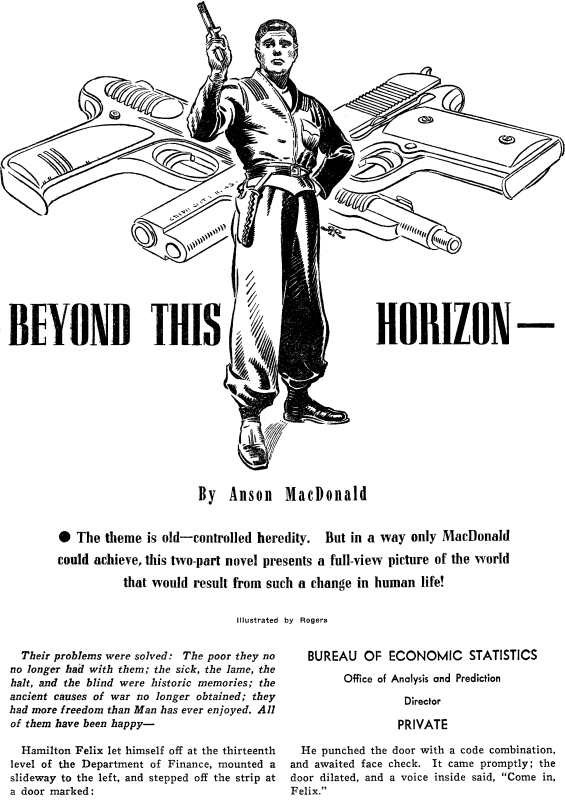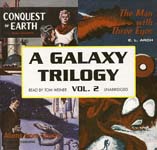
 The SFFaudio Podcast #360 – Jesse, Julie Davis, and Maissa talk about The Sign Of The Four by Sir Arthur Conan Doyle.
The SFFaudio Podcast #360 – Jesse, Julie Davis, and Maissa talk about The Sign Of The Four by Sir Arthur Conan Doyle.
Talked about on today’s show:
1890, Oscar Wilde, Lipincott’s Magazine, a meeting at the Langham hotel August 30, 1889, The Picture Of Dorian Gray, a golden evening, years vs. six weeks, Doyle’s massive output, Wilde’s one novel, a whole new story, a Sherlock Holmes melting pot, Jeremy Brett adaptation, Mystery!, Masterpiece Theater, the 1983 cartoon, great visuals, the Sherlockiana, cocaine begins and ends the book, A Study In Scarlet, Watson is done already, black armbands, “an old adventure”, so Aspergery, Psychology Today, a patriotic obligation, the Andaman Islander, wrapped into a romance, 120 different kinds of tobacco ash?, worrying about details, movable wounds, misshapen heads, the Andaman Islands, they may not even have fire (technology), that’s still a thing, stone age, low on metal, Conan Doyle’s omnivorous interests, Joseph Bell, Jonathan Small has big willpower, a supervillain with a conscience, a sympathetic villain, blacks vs. whites, if Seth were here, we four should enter into a tontine, a recipe for murder, a group investment scheme, the strand with the romance, holding hands, Mary’s disdain for money makes her more attractive to Watson, the Agra treasure, the golden barrier, very chemical, significant looks, love is an emotional thing opposed to true cold reason, A Scandal In Bohemia, The Valley Of Fear, Sherlock Holmes vs. the Ku Klux Klan, the Mormon community, The Five Orange Pips, Philip K. Dick was reading histories of WWII, Doyle was reading the newspaper, a mystery romance, he’s overthinking it, go out and get Toby, the Baker St. irregulars, he does a chemical analysis, Sherlock Holmes tropes, deerstalkers, like wearing a hunting jacket in NYC, warm tweeds, Watson calls Holmes an “automaton”, Fred Saberhagen’s Berserkers, Cylons, the Borg, he forgets to kill all humans, Wings Out Of Shadow, the Red Baron, a deducing machine, allowing for expansion, the little nuggets allow participation in the experience, Agatha Christie, waiting for plot development to happen, two knights errant, Mr. Spock, Edgar Allan Poe’s C. August Dupin, consulting detectives, tales of ratiocination, The Purloined Letter, a government official who has lost a document, solves, Zadig by Voltaire, full blown Science Fiction, H.G. Wells, Jules Verne, Phileas Fogg is clock-like, he loves the fog, there is no hot-air balloon in Around The World In Eighty Days, The Seven-Percent Solution, a chase on the river Thames, Robert Downey, Jr., disabling spleens, hidden talents, an improvisational violinist, I am an excellent housekeeper, Professor Challenger, Otto Penzler, Neil Gaiman, The Big Book Of Sherlock Holmes, someone with vast interests, The White Company, off to look at The Lost World, dinosaurs, fairies, spiritualism, false-imprisonment, warships of the future, spaceships?, the conversations between Oscar Wilde and Conan Doyle, you seem great – come and talk to us, Data from Star Trek: The Next Generation, Star Trek: The Undiscovered County, one of Spock’s ancestors, Spock as a descendant of Sir Arthur Conan Doyle, The original Wrath Of Khan, Charles Dickens’ A Tale Of Two Cities, Paradise Lost, Moby Dick, Genesis, the A Good Story Is Hard To Find podcast, the war in India, horse, foot and gunners, blowing our own bugles, we’re still that stupid, the 1857 Sepoy rebellion, tallow and lard greased cartridges, the ultimate topper, repeating the cycle, the American Revolution, Thomas Paine, Benjamin Franklin radicalized Thomas Paine, Common Sense by Thomas Paine, you have to reject monarchy, a petition to King George, Paine was right, BBC Radio 4: In Our Time, like a ministerial briefing, nobody looks at history, Doyle is dropping little comments in there, he’s super-anti-racist, rotten families, looking at it a little more cynically, taking-off the romantic blinders, super-human strength, murder, don’t call the police, corruption, ultimately underneath all of it is corruption all the way up and down, human nature, otherwise you have no story, notice Sherlock Holmes never gets paid?, he lays out money, this is why he needs a roommate, class, child labour laws, latch key kids, free-ranging kids, homeless kids, Seth we miss you, Maissa’s son, is Martin Freeman Hollywood’s choice to represent the British everyman?, homo-eroticism, Sherlock‘s entire focus is on the will-they or won’t-they?, Mary in Sherlock, derivative fiction, it is not an adaptation, Hercule Poirot and Captain Hastings, stuffed up a chimney, Without A Clue, Ben Kingsley and Michael Caine, John Watson: The Crime Doctor, The Private Life Of Sherlock Holmes, Billy Wilder, homosexuality, a twinkle, Maissa’s local video store is still open!
Posted by Jesse Willis

 Reading, Short And Deep #003
Reading, Short And Deep #003




